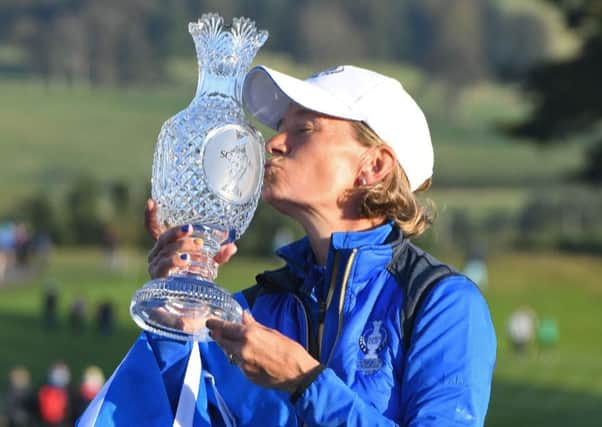A united Scotland stands better chance of sporting success – Prof Grant Jarvie


The world of sport is changing, both in Scotland and beyond. More is expected of sport as it strives to deliver not only on participation and medals but outcomes related to health, education and community cohesion.
Internationally sport has a mandate to deliver the sustainable development goals and Agenda 2030 – something that the Scottish Government is committed to. It is no accident that national sports strategies for Australia, Jamaica, Malaysia are called: Australia 2030, Jamaica 2030, Malaysia 2030.
Advertisement
Hide AdAdvertisement
Hide AdThe agency for sport in Australia gets money from the Department of Foreign Affairs of Trade. They have a plan called sports diplomacy 2030. Sport is key to Australia’s efforts to win friends, trade and influence. China builds sports stadiums in Africa because it wants to advance its influence. The Norwegian Minister for international development states that the Norway Cup is one the best things that Norway does to win friends.
Scotland has hosted a Solheim Cup event and through the work of EventScotland, sportscotland, our cities and rural event hotspots have an envious track record of hosting sports events. We are really good at this. This is knowledge that Scotland has that could be used to help others less fortunate than ourselves.
Other countries use sport in more of a strategic way to win friends, trade and influence. This is part of the new world that sport competes in at home and abroad. At home where sport is expected to, and does, contribute significantly to Scotland’s national outcomes, and internationally, where countries use sport for other ends and fund it to achieve these ends.
On top of all this, sport is expected to get to finals, win medals and help Scotland become less inactive.
What other aspect of culture does all this?
Scottish sport, particularly the small to medium-sized sports organisations, are asking for help.
To compete in this world, Scottish sport has to be effective, joined up, united and pulling in the same direction with an agreed common purpose. The 13 recommendations and observations in the Jarvie report are designed to help Scotland on this journey.
The key ones are:
n Small sports organisations want to be free to work at the coalface developing sport in Scottish communities but they are overburdened with administration and reporting and evidence requirements.
n Sports want to plan over longer periods of time and know that they have budgets beyond a parliamentary cycle.
Advertisement
Hide AdAdvertisement
Hide Adn A Scottish Advisory Board for Sport, not too different to Commonwealth Ministers Advisory Board for Sport, would help to provide a stronger, more coherent unified voice for sport.
n The ability of Scottish sport to attract philanthropic funding is in its infancy.
n The sector would benefit from a comprehensive organisational map including the remits of different organisations.
n The growth and advances in digital technology should be captured.
n Sport has a world mandate through Agenda 2030. Scotland needs to recognise the leverage this mandate brings.
n Scotland should look at how other countries maximise sport as a soft power asset.
Stronger together than apart is the key message for Scottish sport. Almost 90 per cent of Scottish sport spend is in local authorities. They are hurting but doing a lot of great work that often goes unnoticed through recreational sport. Perhaps local authorities and local sport and leisure trusts could develop mutual joint strategies for sport and recreation?
The good news is that Scottish sport gets this, is up for this new world, is delivering and is great value for money, as evidenced, for example, in the recent Scottish football social return on investment report and Scottish athletics social impact report. Sportscotland is value for money.
Advertisement
Hide AdAdvertisement
Hide AdSport is in a good place but in order to be more influential and deliver more benefits it needs to be united and pulling in the same direction. A thousand sporting voices can flourish but, in the end, Scottish sport needs an enlarged common agreed purpose that gains traction across a range of ministries.
What we need to capitalise on is the fact that sport is this fantastic resource that Scotland has. Scotland is a sporting nation, but what it means to be a sporting nation is slightly different to what it was in the days of Baxter, Law and Rose Reilly.
Sport is delivering against the greater expectations that are being asked of it – national outcomes, Agenda 2030 and these world cup and world championship journeys.
Scottish sport is in a good place and the recommendations published this week build on our many strengths.
So, build on success, continue the great work in communities and on the world stage, but Scottish sport needs help, is asking for help to deliver on increased levels of effectiveness, success, outcomes and influence in a new sporting world.
Professor Grant Jarvie is author of The Jarvie Report 2019: A Review of the Scottish Sporting Landscape